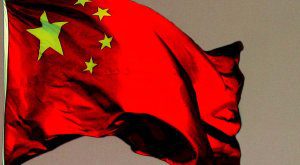The suggestion that there’s little the Canadian government can or should do in response to Chinese economic coercion needs to be rejected. Canada has some significant advantages and China is taking some serious risks, writes Duanjie Chen.
By Duanjie Chen, September 24, 2019
China recently moved to ban Canadian canola, soybeans and other agricultural products. These moves are closely tied to the growing tensions between the two countries that began in December, 2018, when Canadian authorities arrested Huawei executive Meng Wanzhou in Vancouver, following an extradition request from the United States.
Beijing’s response to that action has been particularly aggressive, ranging from the arbitrary and unlawful arrests of Canadians Michael Kovrig and Michael Spavor to the resentencing of Canadian Robert Schellenberg from prison to execution for drug trafficking. With its ban on Canadian agriproducts, China is increasing its economic coercion to pressure Canada into releasing Ms. Meng.
The disparity in economic power between Canada and China has led some observers to comment that “we need China – and China doesn’t need us” or that we were only “a flea sitting on China’s shoulder.” The suggestion is that there’s little the Canadian government can or should do in response to Chinese economic coercion.
Yet that pessimistic view needs to be rejected. Canada has some significant advantages and China is taking some serious risks.
It is important to remember that the majority of our exports to China are commodities for which the supply is constrained by natural resources that are either scarce or rapidly depleting in China. Meanwhile, all our imports from China are manufactured goods that are easily replaceable from suppliers in other markets, despite possibly higher prices. Indeed, cultivating more reliable suppliers for such goods will benefit Canada economically in the long run.
The long-term prospects for our farmers facing China’s ban on our agriproducts do not seem as dire. For example, even with the ban on canola, Canada’s planted canola area is expected to climb, canola seed exports will be still higher than in the past and canola oil production will increase over the longer term. Still, Canadian farmers deserve support from the government in the near term because of political disruptions beyond their control.
The canola story reflects general global trends for other commodities dependent upon natural resources, particularly edible ones – specifically, that global markets for our agriproducts and other natural resources have been generally stable.
China’s bans of Canadian agriproducts will not change the global demand for those products. Indeed, China’s disruptive play will only cause growing distrust among its trading partners, which in turn will adversely affect China’s long-term security in food supply.
A Chinese ban on all our agriproducts would total about $10-billion for the coming year – and that potential loss would increase to $16.4-billion if China ever decides to bar its tourists from visiting Canada and recall its students studying in Canada. That is not a likely outcome, but it does show the limits of China’s ability to apply economic coercion against Canada.
Finally, the Chinese economic juggernaut is showing signs of wear; it is suffering from severe shortages of arable land, persistent income disparity, an aging population and a growing popular desire for the benefits of foreign competition. Importantly for Canada, its need for agriproducts imports will only continue to grow.
Canada also has some immediate options that could be used to counter China’s economic coercion. We could ban Huawei from any involvement in Canada’s 5G wireless network, given that it poses a direct threat to our national security. Ottawa can also register and scrutinize all the R&D funding sources from China and sever the ones that aim to steal our intellectual property.
Canadian farmers coping with China’s economic coercion could also use support from the government. This could entail expanding existing insurance programs, with some of the funds potentially coming from the diversion of our capital share in the China-led Asian Infrastructure Investment Bank (AIIB). And on the AIIB itself, Canada could withdraw its membership from an organization that serves as an important institutional representation of China’s global power.
In the long term, Canada should be taking every measure available to diversify our trade beyond China. Taiwan has been vigilantly doing so for years, and Canadians should take note of its efforts to achieve greater resilience against China’s economic coercion. Such trade diversification should be part of Canada’s long-term strategy in the Indo-Pacific region.
With its growing economic size, China believes it can act at will against any country. Yielding to China’s coercion, economic or otherwise, will only embolden it.
What we want from China is for it to behave like an equal member of the international community, which is how we see ourselves and how we treat the United States. The world will be a better place when China sees itself as an equal member of the international community and respects international norms.
Duanjie Chen, an independent scholar with a PhD in economics, is a Munk senior fellow at the Macdonald-Laurier Institute. This article is based on her recent MLI paper, Countering China’s Economic Coercion.





